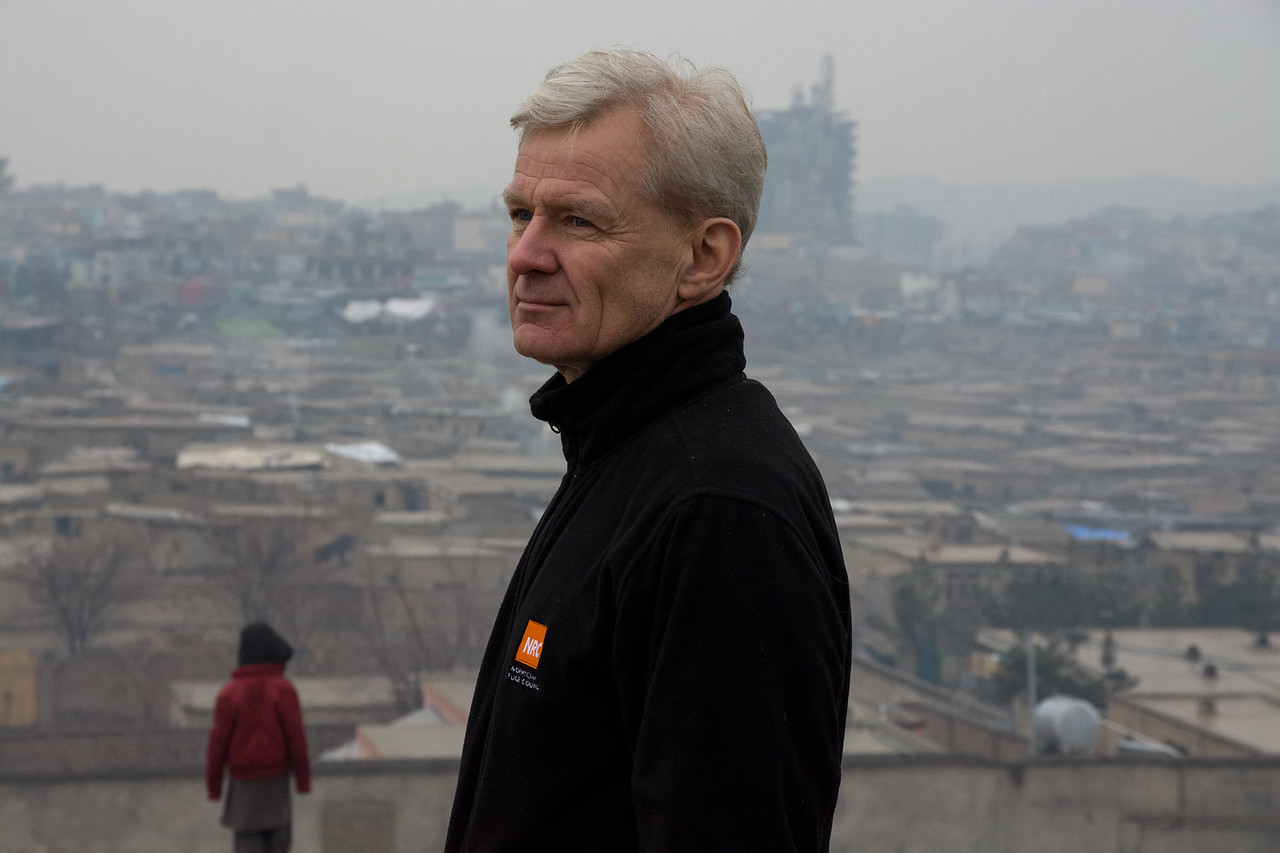Jan Egeland is a Norwegian diplomat, political scientist, humanitarian leader and former Labour Party politician. He has been the Secretary General of the Norwegian Refugee Council since August 2013, a role which oversees the work of the humanitarian organisation in more than 30 countries affected by conflict and disaster, including Bangladesh and Myanmar.
The often elusive nature of Covid-19, the illness that in recent weeks has evolved into an ongoing global pandemic, can make deadly emissaries of even the most well-meaning people.
While the rapid spread of the novel coronavirus that causes the disease has sharply increased the urgent need for health measures among the world’s population of displaced people and refugees, it has also pushed humanitarian groups to stay at arm’s length – lest they inadvertently infect the very people they’re trying to help.
Jan Egeland is Secretary General of the Norwegian Refugee Council (NRC). They are an Oslo-based non-governmental organisation that serve nearly nine million people around the globe, including those among the more than 850,000 stateless Rohingya people originally from Myanmar who now live in settlements at Cox’s Bazar in Bangladesh.
Egeland, a former politician in Norway, is one of many in the international aid community now sounding the alarm. In an interview this week with the Globe he said that the crowded, often unsanitary conditions of refugee camps pose an enormous risk for the spread of the novel coronavirus that causes Covid-19.
For the NRC and Egeland, the rampant growth of novel coronavirus has meant a sudden shift in priorities that place sanitation and decongesting shelter up near the very top.
“All of what we’re recommending people to do in industrialised countries is impossible [in refugee settlements],” Egeland said. That includes social distancing and regular, thorough hand-washing, both of which are stymied in crowded camps with little access to clean water.
The people who live here, most of whom were driven from their homes in Myanmar’s Rakhine in August 2017 by “clearance operations” conducted by the country’s military, may be among the most vulnerable in the region to the effects of the pandemic.
Even though Egeland said it would be a “nightmare” to watch Covid-19 spread in the busy camps at Cox’s Bazar, his organisation is trying to forgo the usual boots-on-the-ground approach of traditional humanitarian work.
“We’re very aware that, if we go place-to-place, we may spread the virus, so we need to keep a distance as well,” Egeland said. “We need, as much as possible, to avoid congregating people.”
We cannot assemble people in groups like we could even a few weeks ago, now it has to be online, through leaflets, at a distance
Jan Egeland
This has resulted in the NRC changing tack, opting instead to increase cash distribution to refugees to help them get access to things they need without the intervention of outside workers who may be carrying the virus without knowing it. In practice, this means that the NRC has stepped up its distribution of unconditional cash transmitted via mobile phones or smart cards so families themselves can purchase what they need from local vendors.
That way, Egeland explained, aid workers can also cut out unnecessary congregations of people gathering to receive things handed out by humanitarian staff. True to the new preference for distance, the NRC is also bulking-up its approach to online training and education, as they reconsider their methods for reaching project beneficiaries.
“We cannot assemble people in groups like we could even a few weeks ago, now it has to be online, through leaflets, at a distance”, Egeland said. “The schools are now closed in many countries where we do education, which is essential for displaced children to get out of displacement. We do [educating] increasingly through mobile phones and other methods.”
In Cox’s Bazar, the camps have been under lockdown from outside access since late March. Internet access in the camps has also been restricted by host country Bangladesh for what it describes as security reasons, making online education exceedingly difficult.
Activists within and outside the camps have been lobbying the Bangladesh government for months to lift the restrictions to allow for greater access to information within the settlements, which could prove life saving. Though the government has yet to permit that access, it announced earlier this week that it would consider doing so.
Around the world, Egeland said, displaced peoples living in insecure conditions are now especially at risk, both by misguided perceptions and the reality of the disease. In order to save lives, he said, the humanitarian sector must adapt.
“Typically, in such circumstances, minorities, refugees, migrants are stigmatised, completely unfairly and in contradiction with what the reality is,” he said. “We need to reflexively turn around funding and programming to be able to meet the challenges ahead.”


